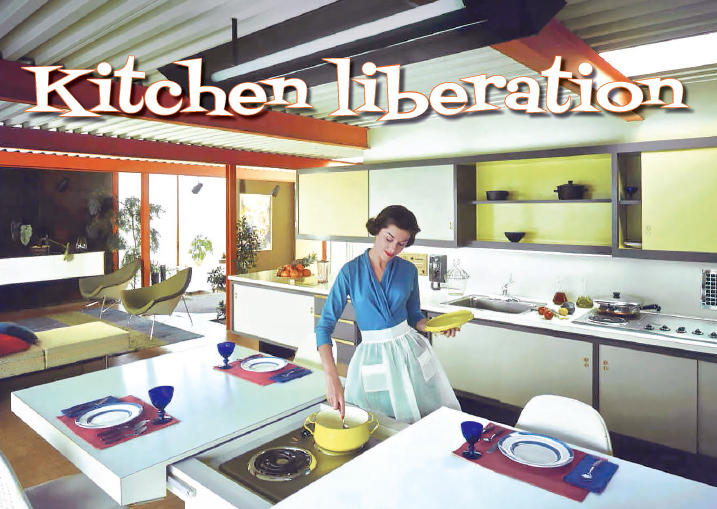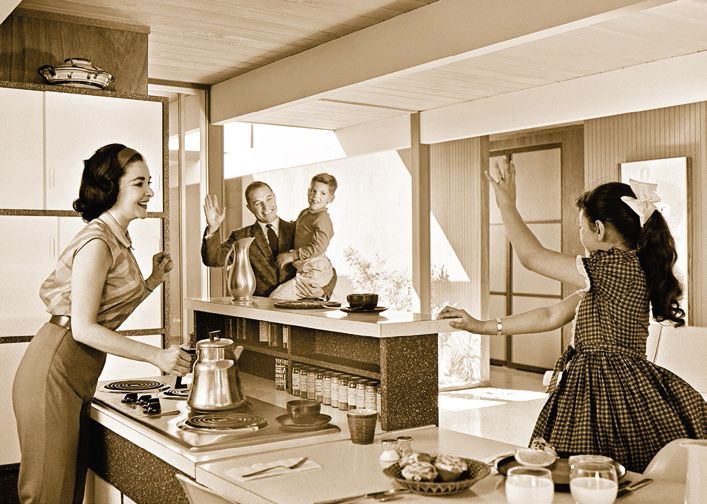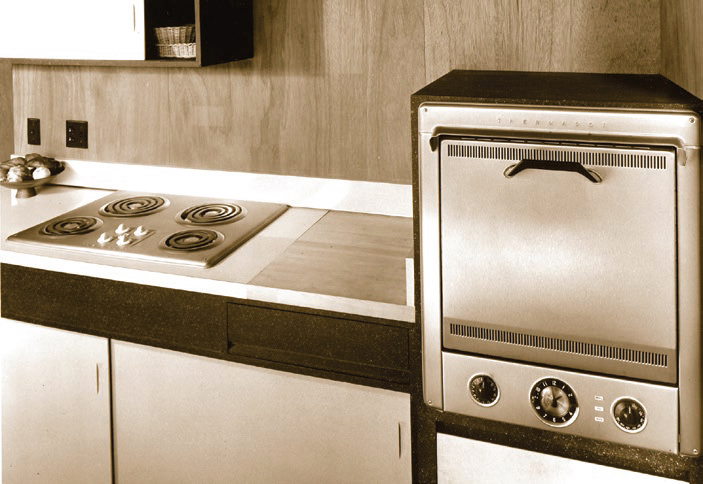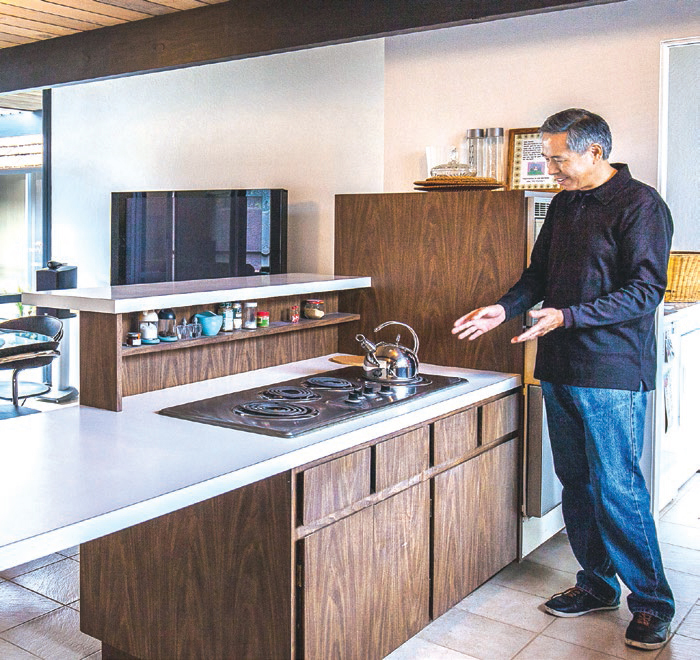Kitchen Liberation
 |
|
|
It's a picture that evokes the era: a grinning dad in suit and tie, heading for the atrium in his Eichler home, and after that for the world of white-collar work.
In one arm he cradles his young son, and with the other hand he waves bye-bye to his ponytailed daughter with a bow in her hair, who appears to be standing on her chair at the Eichler swing-out breakfast table, waving back.
To their left, also smiling, is the dominant figure in this family tableau by developer Joe Eichler's photographer Ernie Braun, the mom. In capri pants and sleeveless blouse, she's standing over the electric stove, her hand on a coffee percolator, breakfast dishes still on the table.
She too is beaming.
We are seeing one of Eichler's trendsetting open-plan kitchens from the mid-century in action. They are one of the builder's great contributions to modern home design.
Neither Joe nor his architects invented the idea of a cook space open to living areas of the house and often to the out of doors. The idea goes back to modern architects of the 1920s.
 |
|
|
But Eichler did as much as any builder to popularize the concept, providing such a kitchen for each of his 11,000 homes from 1949 to 1974.
The open kitchen came of age in the 1950s, and its contribution to history has been great. Clearly it led to the trophy kitchens of today, which look more like entertainment centers than like the spare, utilitarian kitchen spaces of the early 20th century that were hidden from a home's public areas.
But to fully appreciate the impact of the open kitchen requires that we take a broader view, considering also new foods and new technologies that sought to revolutionize home cooking and women's lives in the years after World War II.
Food technologists, marketers, and publishers of women's magazines saw these changes as beneficial because they would liberate women from such slavish culinary tasks as chopping, grinding, blending, and baking. This would give women, in essence, new lives.
The modern kitchen, to some thinkers, had an impact that went even beyond this, coming to represent a free, open Western society, with implications both on the well being of individuals, and on international affairs.
 |
|
|
Eichler owners today may take their homes' original, compact galley kitchens for granted. But not all owners. One wrote the Eichler Network about her appreciation of the Eichler kitchen's historic role.
"Prior, kitchens were closed off so the hired help and women could work away from 'real' members of the family—men and guests," she wrote. "To move the kitchen to the center of the home not only changed entertaining, to be more informal and more DIY, it also elevated women in the process.
She added, "Women, and women's work [had been] made invisible and out of the gaze of polite company. What a change to have a peninsula along the open kitchen, where family members could pull up a bar stool and have breakfast ad hoc."
 |
Early brochures for the Eichler Homes company boasted of one benefit of the open kitchen, its centrality within the home. They also praised the Eichler kitchen's labor-saving machinery:
"From the world's most efficient, most beautiful kitchen, you can serve meals directly to the dining area, the multi-purpose room, or the outdoor dining area. Your Eichler Homes kitchen features a built-in Thermador range and oven, Waste King dishwasher and garbage disposer."




